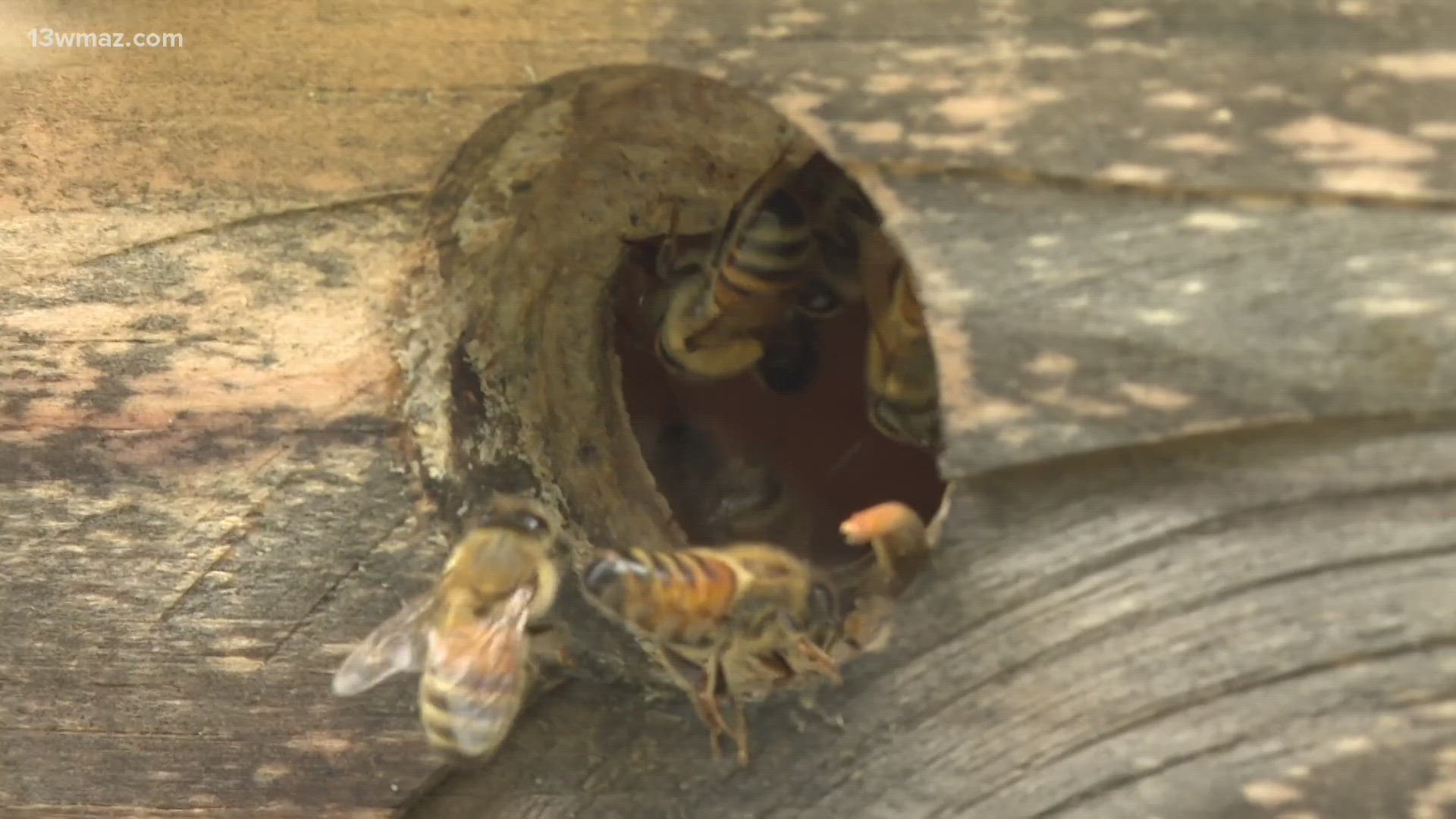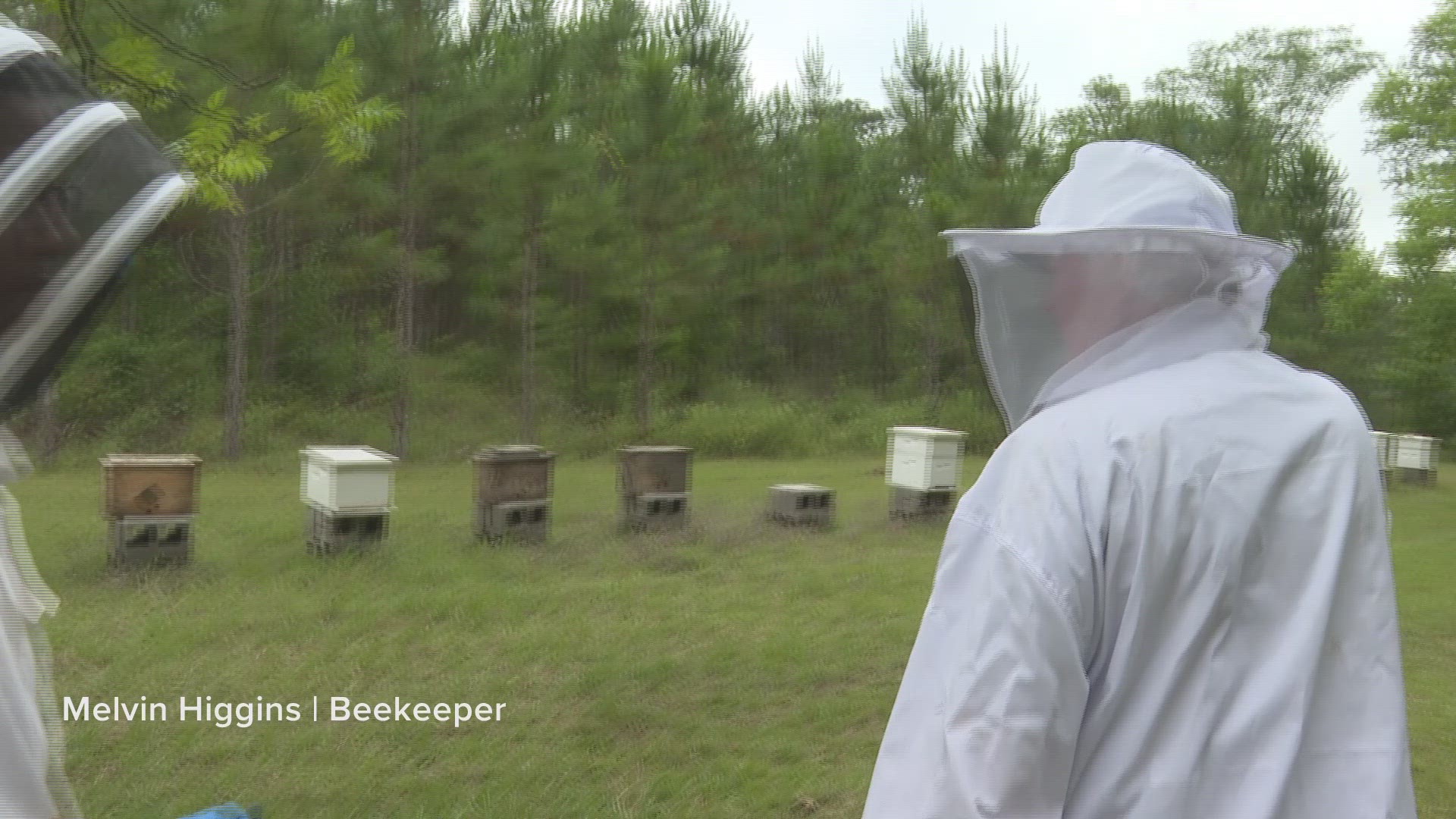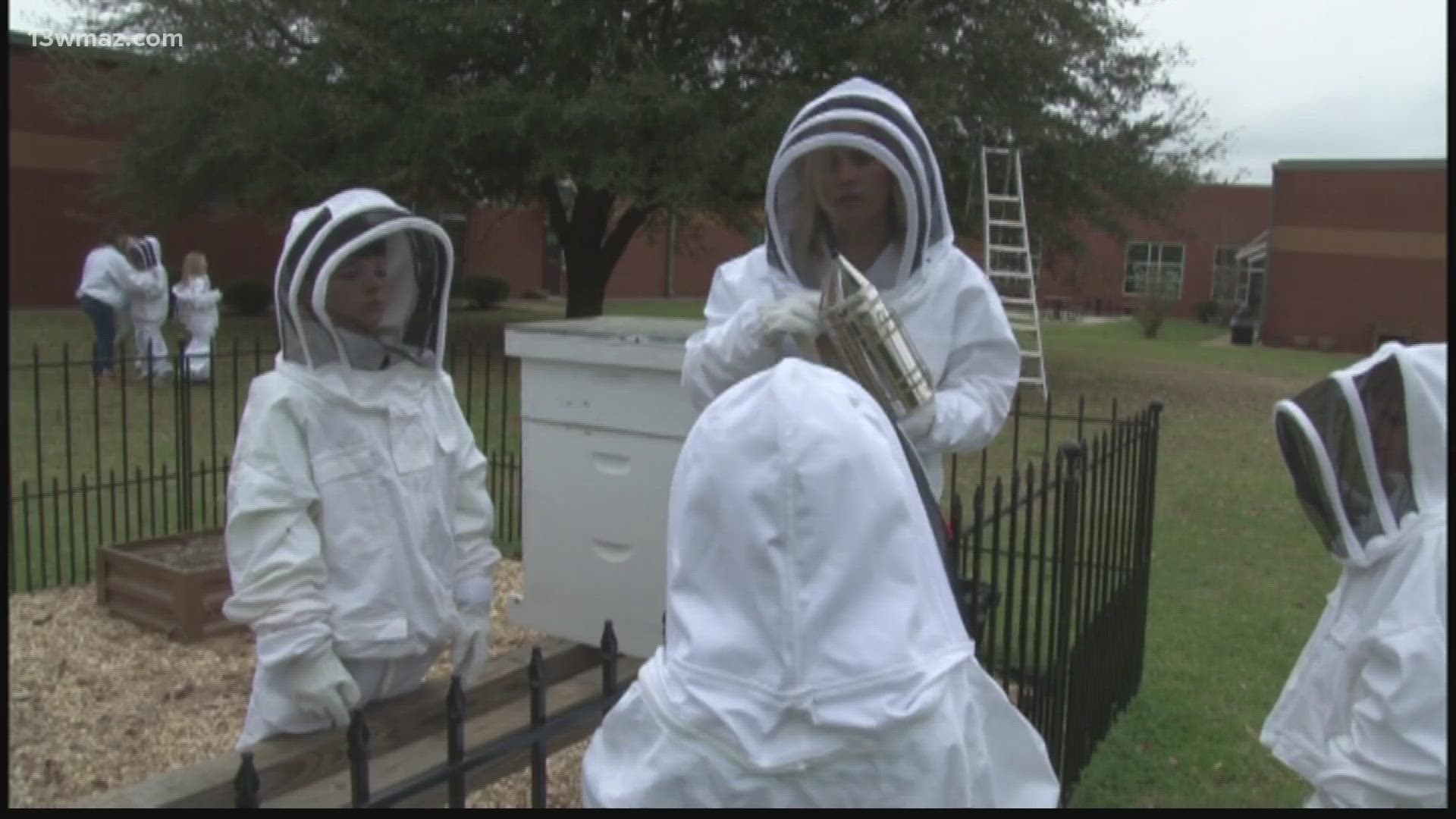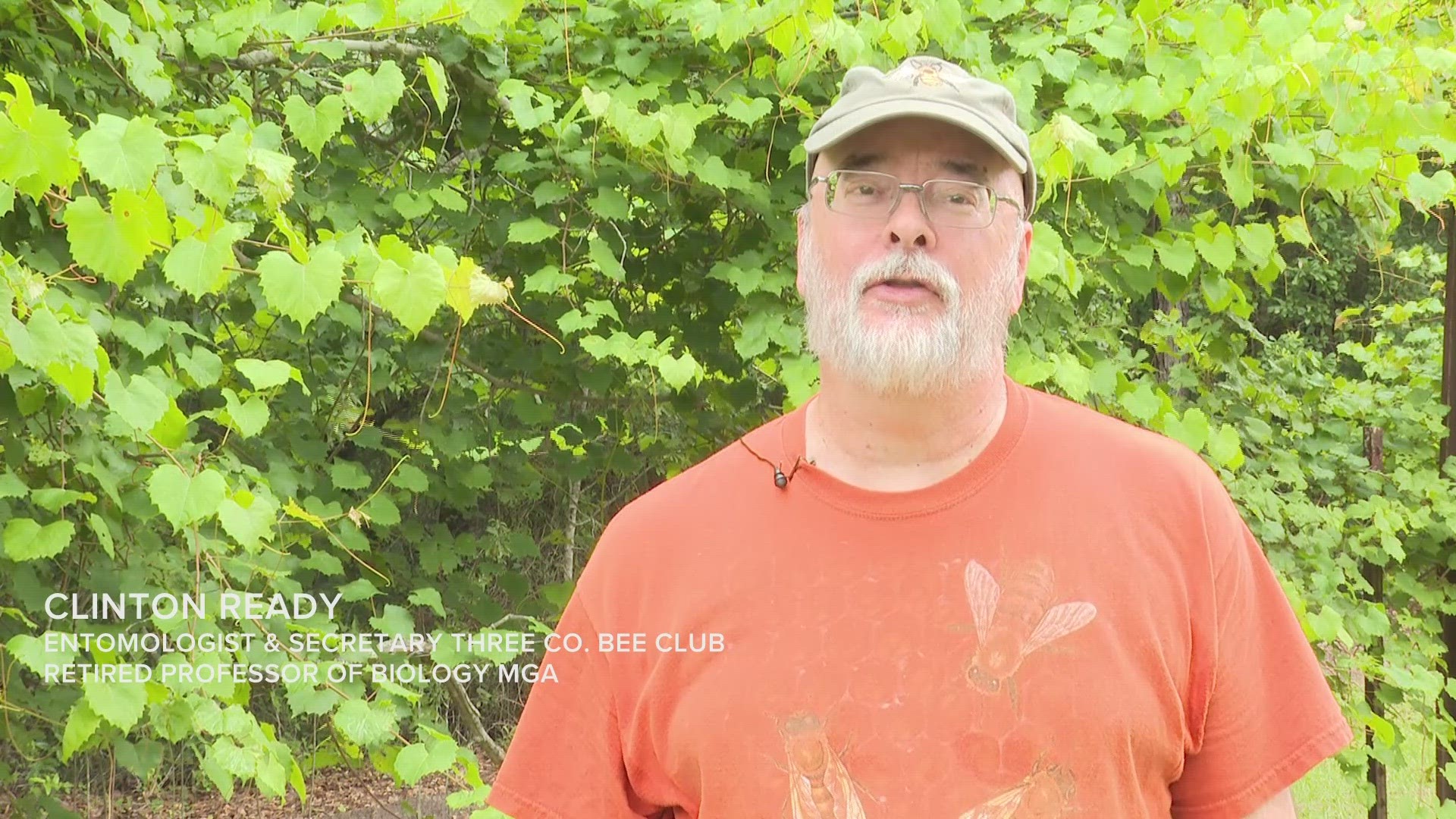Bees & weather: A bond that sustains Georgia's agriculture
Meteorologist Jordan West talked with beekeepers about how bees interact with weather and how vital they are to Georgia's agriculture.
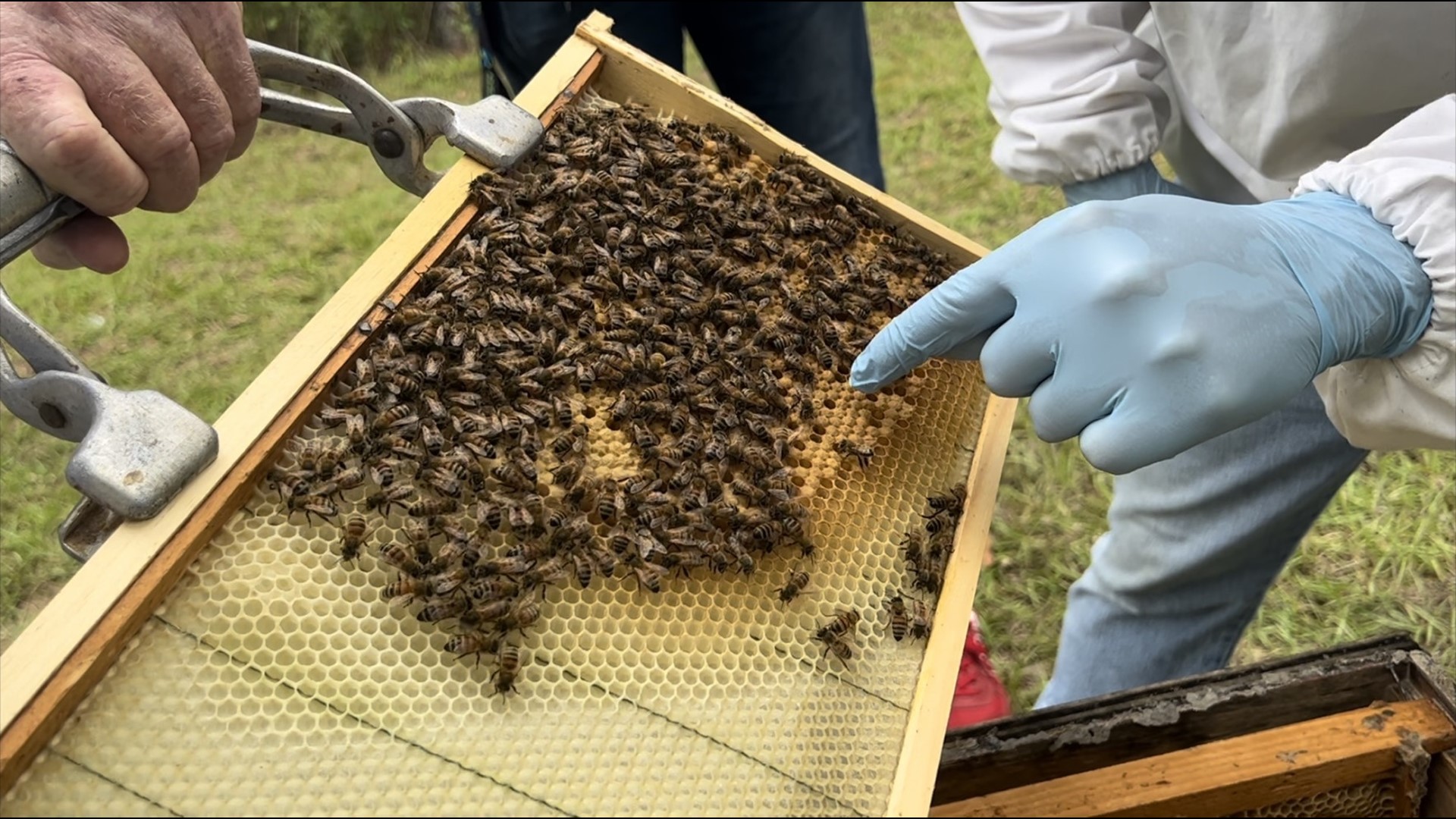
Impacts on Agriculture
According to the U.S. Department of Agriculture, nearly one-third of our food depends on insects for pollination.
That includes $15 billion worth of crops across the nation annually. Honeybees play a crucial role in Agriculture.
Melvin Higgins, the beekeeper of Higgins Farms, understands that Honey bees are vital to his crops.
He says, "Without them... we wouldn't have a food source! Corn, green beans, everything depends on these."
With bees being so important, some schools teach students early on to study and learn how they interact with crops. Dames Ferry Elementary School was honored as 13 WMAZ's School of the Week for making "quite the buzz" by teaching students about beekeeping and its importance to Georgia's agriculture.
The Bee-search
Beekeeper Higgins monitors the weather closely. "If there are a lot of storms or something, they'll go inside, and they'll stay inside the hive...The weather has lots to do with the factors of all bees," he said.
Entomologist Clinton Ready agrees, and had similar experiences.
Kirby Swenson, director of the bee projects at Middle Georgia State University, associate professor of biology, and the president of the three county beekeepers club, did some research between the weather and the bees.
Kirby's initial hypothesis wasn't successful.
"If they know when the storm is coming then maybe they can sense pressure changes, and unfortunately that research did not prove they are able to detect changes," he said.
"Other sources said that what they actually do is look at the light... as the light gets dim, its time to go back to the hive," he continued.
Although bees couldn't detect pressure changes, he did find that they are able to control the internal temperature of their hive.
"In the summer time they'll gather on the porch and all flap their wings to generate an air current. When its cold, they will cluster together and shiver to generate heat and to warm the hive in the winter time," he revealed.

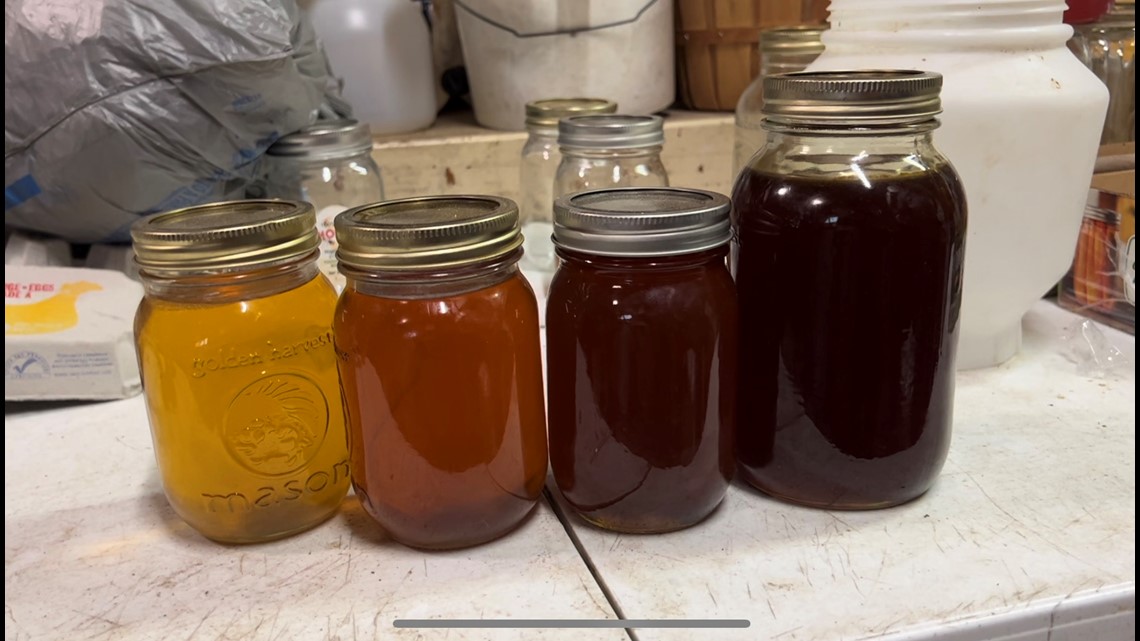
The ability to control the internal temperature of a hive allows honey bees to produce honey all year, gathering nectar from crops that are in season.
Honey can actually change color and flavor based on the seasons as a result.
Nature's Gold
Honey, otherwise known as Nature's Gold, is a source of food for the adult honey bees and is the product of their pollination.
Entomologist Clinton Ready talks about how honey is produced.
"They gather nectar from various flowers and when they ingest it, add a couple enzymes too it, and when they come back to the hive, they regurgitate that nectar into another bee in the hive that'll put it into a cell inside the hive. Then they'll let it evaporate, and when it gets to about 17-16% water, they put a little wax capping over it so that the honey can stay reserved for years," he said.
This honey & wax is then filtered leaving behind pure honey.
Beekeeper Higgins filters the honey himself, allowing him to keep and recycle the wax. He makes fun-shaped candles with the leftover wax.


